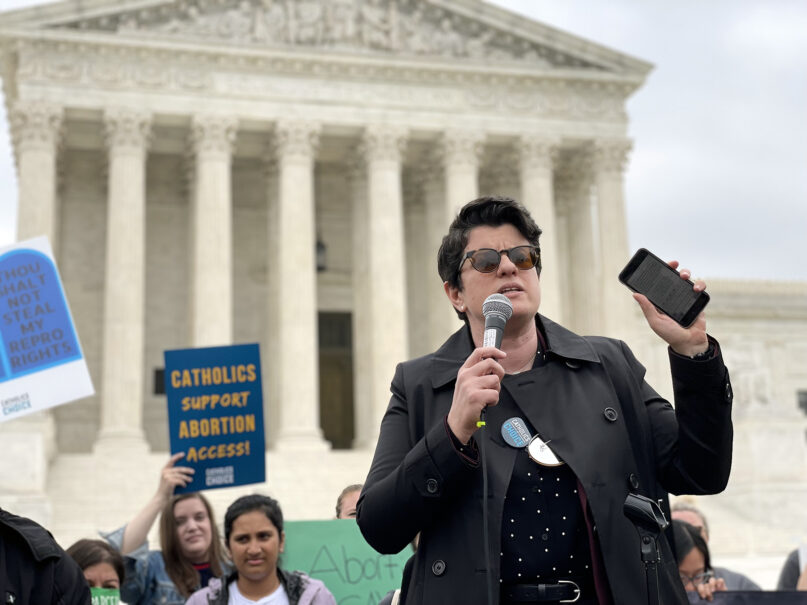by Just Security
August 4, 2022
A note from co-editors-in-chief Tess Bridgeman and Ryan Goodman: Although Just Security is on hiatus this week, we wanted to be sure to examine and reflect on the U.S. airstrike that killed al Qaeda’s top leader, Ayman al-Zawahiri. We asked members of our board of editors to assess the US government’s strongest argument for the legal basis for the strike and any significant weaknesses or flaws in that argument. We invited them to consider international and domestic law.
Brian Finucane, senior adviser with the U.S. Program at the International Crisis Group and a Non-Resident Senior Fellow at the Reiss Center on Law and Security at NYU School of Law. Prior to joining Crisis Group in 2021, he served as an attorney-adviser in the Office of the Legal Adviser at the U.S. Department of State.
As a matter of international law, the U.S. government would likely argue that Zawahiri was targeted as an enemy commander in the ongoing non-international armed conflict with al Qaeda. Further, I would expect the U.S. government to claim that the strike in Kabul was a lawful measure of self-defense as the de-facto authorities were either unable or unwilling to effectively address the threat posed by al Qaeda.
But such arguments raise questions: Twenty years after 9/11, what threat to the United States does al Qaeda still pose, whether from Afghanistan or elsewhere?
Is the threat from al Qaeda such that the use of force in self-defense remains “necessary” as a matter of international law? Or are other non-military tools sufficient to mitigate the threat such that force is no longer necessary?
Does the Biden administration have a theory for when the armed conflict with al Qaeda ends? If so, what is that theory?
The killing of Zawahiri also raises questions of domestic law and the future of the war on terror. After two decades, what is al Qaeda for the purposes of the 2001 AUMF? Which affiliates of al Qaeda are “associated forces” for the purposes of AUMF? Will the Biden administration publicly release the list of all groups it deems covered by the AUMF?
Professor Adil Haque, is Executive Editor at Just Security. He is also Professor of Law and Judge Jon O. Newman Scholar at Rutgers Law School, and author of Law and Morality at War (Oxford University Press):
The U.S. will almost certainly argue that the strike was an exercise of its inherent right of self-defense under the U.N. Charter. The Obama administration took the position that the right of self-defense is triggered by an actual or imminent armed attack by a non-state armed group. Once triggered, the right of self-defense remains activated, and justifies the use of force, as long as “hostilities” with the group continue. Importantly, there is no requirement that further armed attacks are ongoing or imminent, so long as further attacks are expected at some point in the future. Relatedly, there is no requirement to seek the consent of the state on whose territory the strike will take place, if that state is deemed “unwilling or unable” to prevent the armed group from using its territory. That position was adopted by the Obama and Trump administrations, and there is no reason to think that the Biden administration will look elsewhere.
In my view, both aspects of the U.S. position are fundamentally flawed. There is no right to use force in self-defense absent an ongoing or imminent armed attack, and there is no right to use force on the territory of another state, without its consent, absent its responsibility for an ongoing or imminent armed attack. The U.S. has not claimed that Zawahiri was orchestrating an imminent armed attack that the strike preempted, nor has it alleged that the Afghan government is substantially involved in Al Qaeda’s ongoing operations. It appears that members of the Taliban regime may have provided Zawahiri with safe haven. But that alone is not enough to justify the strike.
Zawahiri was a wretched man, and few will mourn his passing. But legal judgment should not be biased by hindsight. The U.S. tried to kill Zawahiri at least twice before. Those strikes killed 76 children and 29 adults according to Reprieve. The U.S. claims that its latest strike killed no civilians. That may be. If so, it is only by sheer luck that the U.S. did not kill even more civilians for no reason that the law accepts.
Professor Oona Hathaway, is Executive Editor at Just Security. She is the Gerard C. and Bernice Latrobe Smith Professor of International Law at Yale Law School, Professor of International Law and Area Studies at the Yale University MacMillan Center, Professor of the Yale University Department of Political Science, Director of the Yale Law School Center for Global Legal Challenges, and Counselor to the Dean at Yale Law School. She served as Special Counsel to the General Counsel of the Department of Defense:
From a domestic law perspective, the legal basis for the strike on Zawahiri is, most lawyers would agree, straightforward: The 2001 Authorization for the Use of Military Force, enacted mere days after the 9/11 attacks, authorizes the President to use all “necessary and appropriate force against those … organizations he determines planned … the terrorist attacks that occurred on September 11, 2001.” Zawahiri, as the leader of the organization that carried out the attacks—and a prominent figure in the organization on 9/11, falls squarely within that authority. That surface clarity, however, ignores a deeper question about whether that 2001 authorization has expired. There is no sunset clause in the 2001 AUMF, but Congress clearly did not contemplate an endless war when it enacted the law more than two decades ago. There is a strong argument that the authorization has effectively expired, though that argument has yet to win in court when raised by those who continue to be detained at Guantanamo Bay under the authority indirectly granted by the authorization. Indeed, the successful strike on Zawahiri is likely to lead to a new set of challenges to those detentions on the ground the conflict in which they were detained has now run its course.
The international law basis for the strike is similarly easy on the surface and harder on deeper reflection. On the surface, the strike is justified as an act of “self defense” under Article 51 of the United Nations Charter and almost certainly is considered by the administration to fall within the Article 51 letter filed with the UN shortly after the attacks. But when we consider the fact that the attack on Zawahiri comes more than two decades after the 9/11 attacks, the legal argument gets harder to sustain. Granted, Al Qaeda has more fighters than it did on 9/11 despite two decades of our best efforts—during which we spent trillions of dollars—to defeat the group. But it’s far from clear that any of the affiliates have plans to attack the United States or that Zawahiri was involved in such plans if they do. Under international law, acts of self defense need to be aimed at averting active ongoing threats to the state undertaking the self defensive action (or, if it is an act of collective self defense, threats to a state that has requested that state’s assistance). There is also the issue of Afghanistan’s sovereignty. The Afghan government clearly did not consent to the strike. The United States has long sought to justify strikes against nonstate actors located in states that are “unable” or “unwilling” to address the threat they pose as falling within the scope of Article 51. But this theory has been explicitly endorsed by fewer than a dozen states. It may be conventional wisdom in Washington that such strikes are justified, but that conventional wisdom is one of many ways in which what is taken for granted in Washington is at a disconnect with traditional methods of international law. (Under a separate body of international law—international humanitarian law—the strike seems to have been clearly legal, assuming Zawahiri was a legitimate military target. According to current reporting, there was, remarkably, no collateral damage—which would be a testament to the careful planning, techniques, and technology developed over two decades of war.)
In short, the strike reflects the ambiguities inherent in the current U.S. counterterrorism program: It was at once a great success that falls squarely within widely accepted legal theories that have guided U.S. conduct for two decades and it demonstrates how flawed and strained those very same theories are.
Stephen Pomper, Chief of Policy at the International Crisis Group. During the Obama administration, he served as Special Assistant to the President and NSC Senior Director for Multilateral Affairs and Human Rights. He also served as Senior Director for African Affairs. Prior to moving to the NSC, he was the Assistant Legal Adviser for Political-Military Affairs at the Department of State. He is a Non-Resident Senior Fellow at the Reiss Center on Law and Security at NYU School of Law:
The much celebrated recent U.S. strike that killed Ayman Zawahiri sheds some useful light on the Biden administration’s approach to the so-called the global war on terror (GWOT) including some of the tensions in the administration’s approach to warmaking.
On the one hand, President Biden pledged on the campaign trail to end what he referred to as “forever wars”. He pulled American troops from Afghanistan in the face of withering criticism; told the United Nations that the U.S. is no longer at war; and appears to have diminished the tempo of military counterterrorism operations considerably.
On the other hand, the Biden administration continues to engage in counterterrorism operations from a war footing. It has maintained the capacious legal interpretations that enabled the GWOT to branch out to countries far from Afghanistan; has spent no visible political capital to repeal or narrow the 2001 Authorization for Use of Military Force that undergirds this framework; and – as evidenced by the Zawahiri operation – continues to strike senior al-Qaeda leadership.
None of this is especially surprising. Candidate Biden and his team were always careful to hedge their commitments to end unproductive U.S. military entanglements in a way that left space for military counterterrorism, and have never shown much appetite for yielding the expansive authority that executive branch lore and practice – and congressional acquiescence – afford them in this space. But they also have other challenges, including most immediately a Russian war in Ukraine and a tense situation in the Taiwan strait. The result is arguably a sort of GWOT-lite, which has the full legal contours of the longstanding war on terror but a more limited op tempo that generally keeps strikes off the front pages, lowers the volume on criticism, and preserves the resort to force as an option for when policymakers feel it is needed. (Of course there is nothing inherently durable about the “lite” aspect of the current scheme: the same legal architecture could be used in a much more heavy-handed way by a different group of policymakers.)
Given who Zawahiri was, and so long as major reports of civilian casualties do not emerge, it is hard to imagine too much by way of criticism against the strike. But the operation does present some interesting questions that lawyers and commentators can be expected to probe. Among them:What facts could the U.S. present to make the case that the Taliban’s relationship to Zawahiri’s activities and whereabouts violated the 2020 Doha agreement (in which the Taliban committed to prevent any groups or individuals, including al-Qaeda, from “using its soil” for and “recruiting, training, and fundraising” “to threaten the security of the United States and its allies”).
Under what theory did President Biden disclose an action reportedly taken by intelligence operatives under what appear to be covert authorities?
If the latter is the U.S. going to notify the United Nations or rely on its 2001 notification following the September 11 attacks?
Looking ahead, does the U.S. consider itself to be still at war in Afghanistan for purposes of international and domestic law and if so against specifically what groups and on what bases?
The answers are unlikely to depart significantly from what this and past administrations have offered, which is a useful reminder that while September 11 continues to recede and the GWOT fades from view, the changes they wrought to the U.S. national security apparatus endure.









